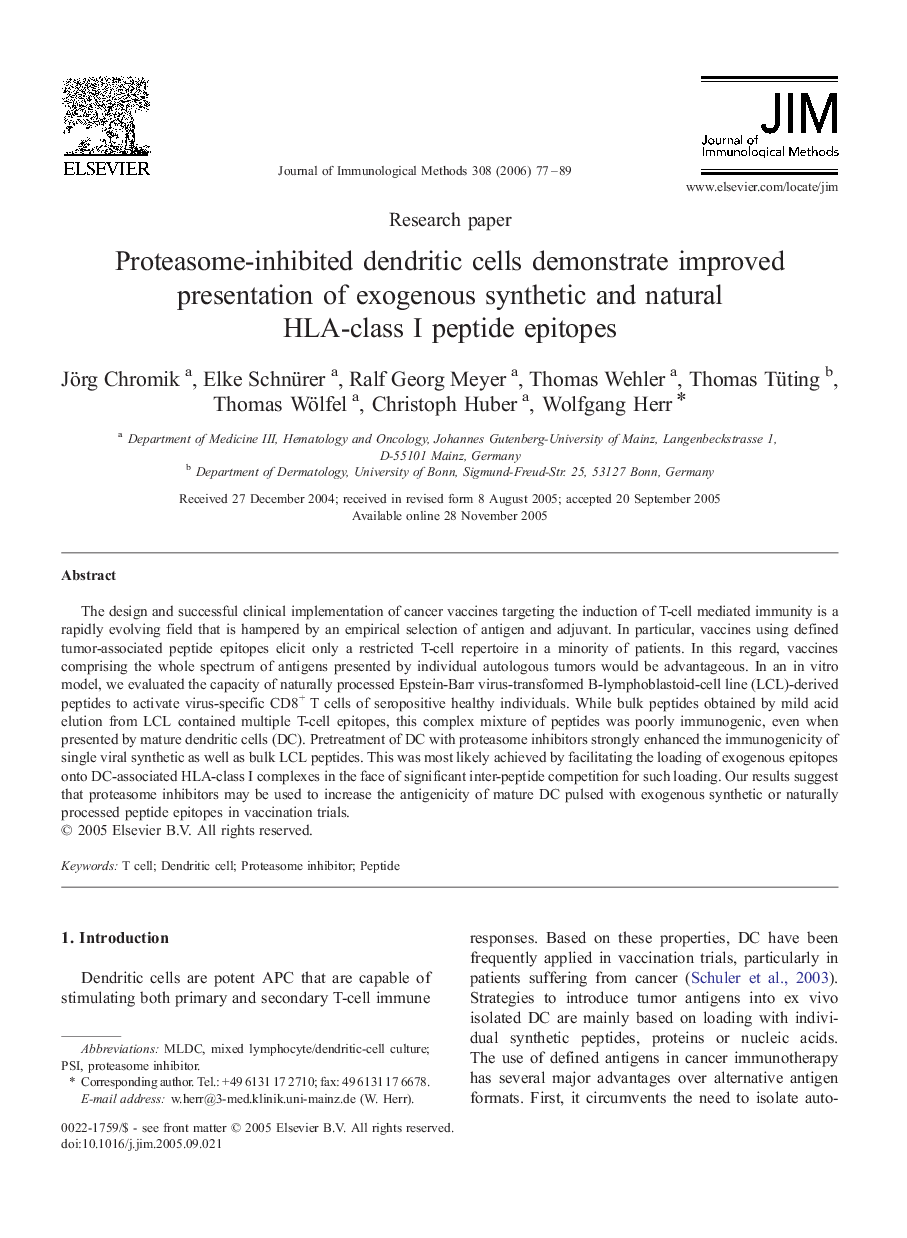| Article ID | Journal | Published Year | Pages | File Type |
|---|---|---|---|---|
| 2089507 | Journal of Immunological Methods | 2006 | 13 Pages |
The design and successful clinical implementation of cancer vaccines targeting the induction of T-cell mediated immunity is a rapidly evolving field that is hampered by an empirical selection of antigen and adjuvant. In particular, vaccines using defined tumor-associated peptide epitopes elicit only a restricted T-cell repertoire in a minority of patients. In this regard, vaccines comprising the whole spectrum of antigens presented by individual autologous tumors would be advantageous. In an in vitro model, we evaluated the capacity of naturally processed Epstein-Barr virus-transformed B-lymphoblastoid-cell line (LCL)-derived peptides to activate virus-specific CD8+ T cells of seropositive healthy individuals. While bulk peptides obtained by mild acid elution from LCL contained multiple T-cell epitopes, this complex mixture of peptides was poorly immunogenic, even when presented by mature dendritic cells (DC). Pretreatment of DC with proteasome inhibitors strongly enhanced the immunogenicity of single viral synthetic as well as bulk LCL peptides. This was most likely achieved by facilitating the loading of exogenous epitopes onto DC-associated HLA-class I complexes in the face of significant inter-peptide competition for such loading. Our results suggest that proteasome inhibitors may be used to increase the antigenicity of mature DC pulsed with exogenous synthetic or naturally processed peptide epitopes in vaccination trials.
